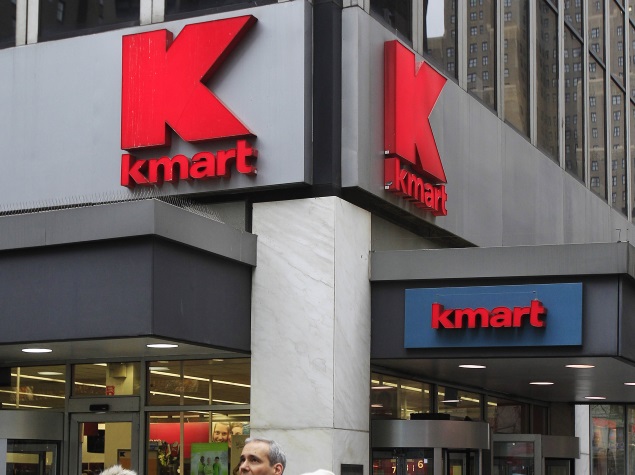- Home
- Internet
- Internet News
- Kmart Becomes Latest Retailer Hit by Data Theft
Kmart Becomes Latest Retailer Hit by Data Theft

The data theft at Kmart is the latest in a string of hacks at big retailers including Target, Supervalu and Home Depot.
Sears Holdings, which also operates Sears stores, said that Kmart's information technology department on Thursday detected a breach of its payment data systems.
The company was unable to provide the number of affected cards. But it said that based on its investigation so far, it believes no personal information, debit card PIN numbers, email addresses or social security numbers were obtained by the hackers. And there's no evidence that Kmart.com shoppers were affected.
It said Kmart was able to remove the malicious software from its systems.
The news of the hack is a blow to Kmart's Hoffman Estates, Illinois-based parent company, which is struggling with losses and sales declines as it fights to stay relevant with shoppers.
Sears said Kmart is working with federal law enforcement authorities and banking partners as it investigates the breach. It is also deploying software to protect customers' information.
The company said that it will be providing free credit-monitoring protection for customers who shopped with a credit or debit card at Kmart stores during the month of September and through Thursday. It also emphasized that customers have no liability for unauthorized charges if they report them in a timely manner, according to the policies of most credit card companies. Sears said that the most up-to-date information will be available on its website, kmart.com and customers can contact its customer care center at 888-488-5978.
The announcement comes a few weeks after Home Depot, the nation's largest home improvement chain, said that a data breach that lasted for months at its stores in the U.S. and Canada affected 56 million debit and credit cards. A pre-Christmas 2013 attack at Target Corp. compromised 40 million credit and debit cards.
The size of the theft at Home Depot trails only that of TJX Companies' heist of 90 million records disclosed in 2007.
Target's high-profile breach pushed banks, retailers and credit card companies to increase security by speeding the adoption of microchips in U.S. credit and debit cards. Supporters say chip cards are safer, because unlike magnetic strip cards that transfer a credit card number when they are swiped at a point of sale terminal, chip cards use a one-time code that moves between the chip and the retailer's register.
Catch the latest from the Consumer Electronics Show on Gadgets 360, at our CES 2026 hub.
Related Stories
- Samsung Galaxy Unpacked 2025
- ChatGPT
- Redmi Note 14 Pro+
- iPhone 16
- Apple Vision Pro
- Oneplus 12
- OnePlus Nord CE 3 Lite 5G
- iPhone 13
- Xiaomi 14 Pro
- Oppo Find N3
- Tecno Spark Go (2023)
- Realme V30
- Best Phones Under 25000
- Samsung Galaxy S24 Series
- Cryptocurrency
- iQoo 12
- Samsung Galaxy S24 Ultra
- Giottus
- Samsung Galaxy Z Flip 5
- Apple 'Scary Fast'
- Housefull 5
- GoPro Hero 12 Black Review
- Invincible Season 2
- JioGlass
- HD Ready TV
- Laptop Under 50000
- Smartwatch Under 10000
- Latest Mobile Phones
- Compare Phones
- Tecno Spark Go 3
- iQOO Z11 Turbo
- OPPO A6c
- Samsung Galaxy A07 5G
- Vivo Y500i
- OnePlus Turbo 6V
- OnePlus Turbo 6
- Itel Zeno 20 Max
- Lenovo Yoga Slim 7x (2025)
- Lenovo Yoga Slim 7a
- Lenovo Idea Tab Plus
- Realme Pad 3
- Garmin Quatix 8 Pro
- NoiseFit Pro 6R
- Haier H5E Series
- Acerpure Nitro Z Series 100-inch QLED TV
- Asus ROG Ally
- Nintendo Switch Lite
- Haier 1.6 Ton 5 Star Inverter Split AC (HSU19G-MZAID5BN-INV)
- Haier 1.6 Ton 5 Star Inverter Split AC (HSU19G-MZAIM5BN-INV)







![[Sponsored] Haier C90 OLED TV | Dolby Vision IQ, 144Hz OLED and Google TV in Action](https://www.gadgets360.com/static/mobile/images/spacer.png)









